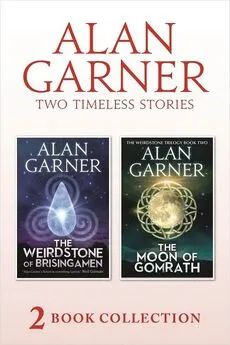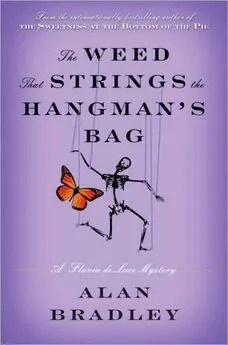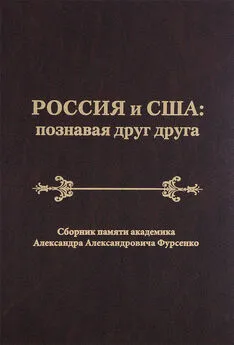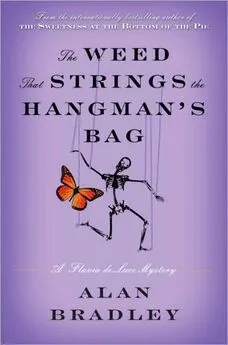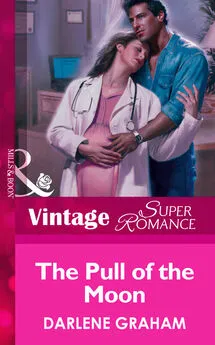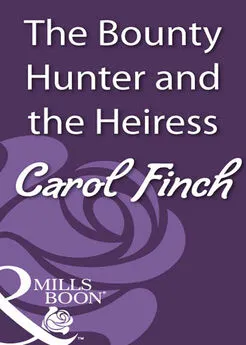Alan Garner - The Weirdstone of Brisingamen and The Moon of Gomrath
- Название:The Weirdstone of Brisingamen and The Moon of Gomrath
- Автор:
- Жанр:
- Издательство:неизвестно
- Год:неизвестен
- ISBN:нет данных
- Рейтинг:
- Избранное:Добавить в избранное
-
Отзывы:
-
Ваша оценка:
Alan Garner - The Weirdstone of Brisingamen and The Moon of Gomrath краткое содержание
The Weirdstone of Brisingamen and The Moon of Gomrath - читать онлайн бесплатно ознакомительный отрывок
Интервал:
Закладка:
“Come on, lad! He’ll be gone else!”
The dog ran backwards and forwards nervously, still barking, then he set off towards the field gate in the snarling glide, keeping his belly close to the ground, and disappeared into the darkness. A second later the snarl rose to a yelp, and he shot back into the light to stand at Gowther’s feet in a further welter of noise. He was trembling all over. His fury had been obvious all along, but now Gowther realised that, more than anything else, the dog was terrified.
“What’s up, lad? What’s frit thee, eh?” said Gowther gently as he knelt to calm the shivering animal. Then he stood up and went over towards the gate, his gun cocked, and shone the light into the field.
There was nothing wrong as far as he could see, but Scamp, though calmer, still foamed at his heels. Nothing wrong, yet there was something … wait!… he sniffed … was there?… yes!!! A cold, clammy air drifted against Gowther’s face, and with it a smell so strange, so unwholesome, and unexpected that a knot of instinctive fear tightened in his stomach. It was the smell of stagnant water and damp decay. It filled his nostrils and choked his lungs, and, for a moment, Gowther imagined that he was being sucked down into the depths of a black swamp, old and wicked in time. He swung round, gasping, wide-eyed, the hairs of his neck prickling erect. But on the instant the stench passed and was gone: he breathed pure night air once more.
“By gow, lad, theer’s summat rum afoot toneet! That was from nowt local, choose how the wind blows. Come on, let’s be having a scrat round.”
He went first to the stable, where he found Prince stamping nervously, and covered with sweat.
“Wey, lad,” said Gowther softly, and he ran his hands over the horse’s quivering flanks. “Theer’s no need to fret. Hush while I give thee a rub.”
Prince gradually quietened down as Gowther rubbed him with a piece of dry sacking, and Scamp, too, was in a happier frame of mind. He carried his head high, and his din was reduced to a growl, threatening rather than nervous – as though trying to prove that he had never felt anything but aggressive rage all night.
Ay, thought Gowther, and yon’s a dog as fears neither mon nor beast most days; I dunner like it one bit!
In the shippons he found the cows restless, but not as excited as Prince had been, for all their rolling eyes and snuffling nostrils.
“Well, theer’s nowt here, Scamp; let’s take a look at the barn.”
They went into the outhouses, and nowhere was there any hint of disturbance, nor did anything appear to have been tampered with.
“Ay, well everywheer seems reet enough now, onyroad,” said Gowther, “so we’ll have a quick peek around the house and mash a pot of tea, and then it’ll be time to start milking. Eh dear, theer’s no rest for the wicked!”
The sky was showing the first pale light of day as he crossed the farmyard: soon another morning would be here to drive away the fears of the night. Already Gowther was feeling a little ashamed of his moment of fear, and he was thankful that there had been no one else there to witness it. “Eh, it’s funny how your imagination plays …” He stopped dead in his tracks, while Scamp pressed, whining, close to his legs.
Out of the blackness, far above Gowther’s head, had come a single shriek, too harsh for human voice, yet more than animal.
For the second time that night Gowther’s blood froze. Then, taking a deep breath, he strode quickly and purposefully towards the house, looking neither to the right nor to the left, neither up nor down, with Scamp not an inch from his heels. In one movement, he lifted the latch, stepped across the threshold, closed the door, and shot the bolt home. Slowly he turned and looked down at Scamp.
“I dunner know about thee, lad, but I’m going to have a strong cup of tea.”
He lit the paraffin lamp and put the kettle on the stove, and while he waited for the water to boil he went from room to room to see that nothing was amiss here at least. All was quiet; though when he looked into Susan’s room a sleepy voice asked what the time was and why Scamp had been making such a noise. Gowther said that a fox had been after the hens, or so he thought, but Scamp had frightened him off. He told a similar story to Bess.
“… and he started barking at his own shadder, he was that excited.”
“Ay? Then what is it as has made thee sweat like a cheese?” said Bess suspiciously.
“Well,” said Gowther, confused, “I reckon it’s a bit early in the day to be running round, at my age. But I’m not past mashing a pot of tea – er – I’ll bring you one: kettle’s boiling!”
Gowther sought the kitchen. It was never easy to keep anything from Bess, she knew him too well. But what could he say? That he, a countryman, had been frightened by a smell and a night bird? He almost blushed to think of it.
By the time he had made the tea, washed, and finished dressing, it was light outside and near milking time. The sun was breaking through the cloud. Gowther felt much better now.
He was halfway across the yard when he noticed the long, black feathers that lay scattered upon the cobblestones.
CHAPTER 6
A RING OF STONES
Thursday at Highmost Redmanhey was always busy, for on top of the normal round of work Gowther had to make ready for the following day, when he would drive down to Alderley village to do the weekly shopping, and also to call on certain old friends and acquaintances whom he supplied with vegetables and eggs. So much of Thursday was taken up with selecting and cleaning the produce for Friday’s marketing.
When all was done, Colin and Susan rode with Gowther to the wheelwright in the nearby township of Mottram St Andrew to have a new spoke fitted to the cart. This occupied them until teatime, and afterwards Gowther asked the children if they would like to go with him down to Nether Alderley to see whether they could find their next meal in Radnor mere.
They set off across the fields, and shortly came to a wood. Here the undergrowth was denser than on most of the Edge, and contained quite a lot of bramble. High rhododendron bushes grew wild everywhere. The wood seemed full of birds. They sang in the trees, rustled in the thicket, and swam in the many quiet pools.
“I’ve just realised something,” said Colin: “I felt the Edge was unusual, and now I know why. It’s the …”
“Birds,” said Gowther. “There is none. Not worth speaking of, onyroad. Flies, yes; but birds no. It’s always been like that, to my knowledge, and I conner think why it should be. You’d think with all them trees and suchlike, you’d have as mony as you find here, but, considering the size of the place, theer’s hardly a throstle to be found from Squirrel’s Jump to Daniel Hill. Time’s been when I’ve wandered round theer half the day and seen nobbut a pair of jays, and that was in Clockhouse Wood. No, it’s very strange, when you come to weigh it up.”
Their way took them through a jungle of rhododendron. The ground was boggy and choked with dead wood, and they had to duck under low branches and climb over fallen trees: but, somehow, Gowther managed to carry his rod and line through it all without a snag, and he even seemed to know where he was going.
Susan thought how unpleasant it would be to have to move quickly through such country.
“Gowther,” she said, “are there any mines near here?”
“No, none at all, we’re almost on the plain now, and the mines are over the other side of the hill, behind us. Why do you ask?”
“Oh, I just wondered.”
The rhododendrons came to an end at the border of a mere, about half a mile long and a quarter wide.
“This is it,” said Gowther, sitting down on a fallen trunk which stretched out over the water. “It’s a trifle marshy, but we’re not easy to reach here, as theer’s some as might term this poaching. Now if you’ll open yon basket and pass the tin with the bait in it, we can settle down and makes ourselves comfortable.”
After going out as far as he could along the tree to cast his rod, Gowther sat with his back against the roots and lit his pipe. Colin and Susan lay full length on the wrinkled bark and gazed into the mere.
Within two hours they had three perch between them, so they gathered in their tackle and headed for home, arriving well before dusk.
The following morning in Alderley village Susan went with Bess to the shops while Colin stayed to help Gowther with the vegetables. They all met again for a meal at noon, and afterwards climbed into the cart and went with Gowther on his round.
It was a hot day, and by four o’clock Colin and Susan were very thirsty, so Bess said that they ought to drop off for an ice-cream and a lemonade.
“We’ve to go down Moss Lane,” she said, “and we shanner be above half an hour; you stay and cool down a bit.”
The children were soon in the village café, with their drinks before them. Susan was toying with her bracelet, and idly trying to catch the light so that she could see the blue heart of her Tear.
“It’s always difficult to find,” she said. “I never know when it’s going to come right … ah … wait a minute … yes … got it! You know, it reminds me of the light in Fundin …”
She looked at Colin. He was staring at her, open mouthed. They both dropped their eyes to Susan’s wrist where the Tear gleamed so innocently.
“But it couldn’t be!” whispered Colin. “Could it?”
“I don’t … know. But how?”
But how?
“No, of course not!” said Colin. “The wizard would have recognised it as soon as he saw it, wouldn’t he?”
Susan flopped back in her chair, releasing her pent-up breath in a long sigh. But a second later she was bolt upright, inarticulate with excitement.
“He couldn’t have seen it! I – I was wearing my mackintosh! Oh, Colin … !!”
Though just as shaken as his sister, Colin was not content to sit and gape. Obviously they had to find out, and quickly, whether Susan was wearing Firefrost, or just a piece of crystal. If it should be Firefrost, and had been recognised by the wrong people, their brush with the svarts would at last make sense. How the stone came to be on Susan’s wrist was another matter.
“We must find Cadellin at once,” he said. “Because if this is Firefrost, the sooner he has it the better it will be for us all.”
At that moment the cart drew up outside, and Gowther called that it was time to be going home.
The children tried hard to conceal their agitation, yet the leisurely pace Prince seemed to adopt on the “front” hill, as it was called locally, had them almost bursting with impatience.
“Bess,” said Susan, “are you sure you can’t remember anything else about the Bridestone? I want to find out as much as I can about it.”
“Nay, lass, I’ve told you all as I know. My mother had it from her mother, and she always said it had been passed down like that for I dunner know how mony years. And I believe theer was some story about how it should never be shown to onybody outside the family for fear of bringing seven years’ bad luck, but my mother didner go in much for superstition and that sort of claptrap.”
“Have you always lived in Alderley?”
“Bless you, yes! I was born and bred in th’Hough” (she pronounced it “thuff”), “but my mother was a Goostrey woman, and I believe before that her family had connections Mobberley way.”
“Oh?”
Colin and Susan could hardly contain themselves.
“Gowther,” said Colin, “before we come home, Sue and I want to go to Stormy Point; which is the nearest way?”
Читать дальшеИнтервал:
Закладка:
